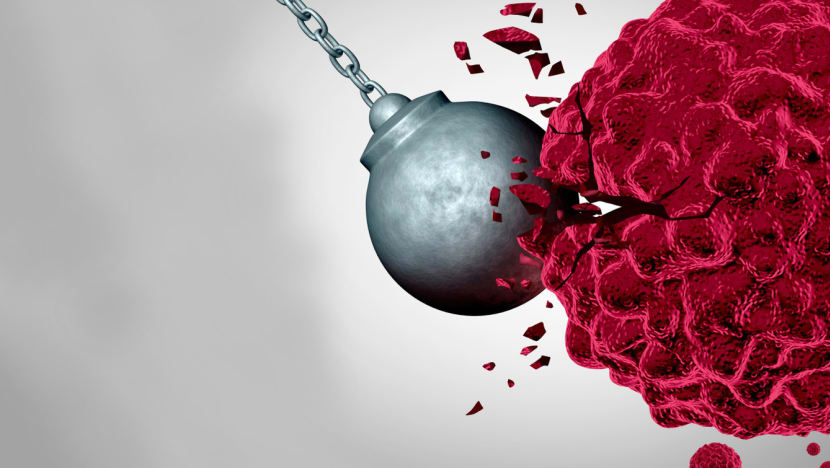A targeted boost for fighting cancer
Immunotherapy and targeted therapy aim to provide better outcomes for patients

Photo: Shutterstock
Cancer treatment is sometimes depicted in movies as a painful ordeal, with patients having to endure surgeries or chemotherapy sessions.
In reality, recent advances mean that cancer treatment has advanced to new heights. Doctors now have a wider range of treatment options to choose from, and are able to customise combinations to maximise their effectiveness.
Immunotherapy and targeted therapy are gaining traction today and are often used alongside existing options such as surgery, hormonal therapy and chemotherapy.
A MULTI-PRONGED APPROACH
Cancer cells are mutated cells that can avoid being destroyed by the body’s own defenses, as the immune system may not recognise them as foreign cells. To ensure that all the cancer cells are detected and removed, a combination of treatments is usually regarded as the best approach.
Besides taking into consideration the patient’s cancer stage and type, Dr Patricia Kho, senior consultant in medical oncology at Parkway Cancer Centre, said that “other factors we would consider are co-existing conditions like age, the patient’s expectations, and the patient’s quality of life”.
A patient’s treatment plan and schedule are not set in stone. According to Dr Kho, a patient’s health is assessed frequently after each treatment, using various methods such as blood tests, physical examinations and scans.
“In addition, cases are often discussed at multidisciplinary meetings, where there are surgeons, radiation oncologists and other medical oncologists, to ensure that the patient is offered the best possible treatment plan,” she said.
HARNESSING THE IMMUNE SYSTEM
Immunotherapy utilises the patient’s own immune system to hunt down and destroy cancer cells. Dr Kho clarified that there are several different forms of immunotherapy. She explained: “The type of immunotherapy that is the talk of the town at present refers to a group of immunotherapy drugs known as checkpoint inhibitors, which are given intravenously. One of the first checkpoint inhibitors which was first approved in 2010 by the United States’ Food and Drug Administration (FDA) was for melanoma, a form of skin cancer."
“Checkpoints” are components of the immune system that can be switched on or off, helping the immune system to determine if the cell detected is foreign or a normal part of the body. Some cancer cells go undetected as they may contain a protein that binds to the checkpoint, switching it off. Checkpoint inhibitors block this binding process, allowing the immune system to remain switched on to identify and attack cancer cells.
While checkpoint inhibitors are very promising in many cancers like lymphoma, lung, bladder and kidney cancers, there are side effects which are very different from chemotherapy-related side effects. The milder effects include temporary flu-like symptoms, muscle aches and weakness, headaches and diarrhoea.
Added Dr Kho: “It can also cause more serious but less common side effects in approximately eight per cent of patients. These include lung inflammation (pneumonitis) and thyroid problems. Overall, however, it is fairly well tolerated.”
IDENTIFYING THE RIGHT TARGETS
Another treatment option is targeted therapy. Approved by the FDA since the early 2000s, it uses drugs to target specific genes or proteins in cancer cells to stop the cancer from growing and spreading.
For example, the drugs may target proteins in blood vessel cells in the tissue surrounding the tumour, stopping them from creating blood vessels and thus starving the tumour of nutrients. This is done without killing normal cells.
Although targeted therapy is associated with side effects, most of the side effects are mild and generally tolerable.
Said Dr Kho: “The side effects of targeted therapy can be treated with medication. There are, however, serious side effects associated with certain targeted therapies, such as inflammation of the lungs, heart failure and risk of bleeding. Hence, we need to evaluate each patient carefully prior to starting such treatments.”
IMPROVED OUTCOMES
Dr Kho is hopeful that targeted therapy and immunotherapy lead to better outcomes for patients.
She said: “Targeted therapy is more specific and hence more effective than chemotherapy as it targets a particular mutation present in the cancer cells, while immunotherapy harnesses one’s own immune system to fight the cancer cells, providing a more lasting response.”
Visit the Understanding Cancer microsite for more videos and information about cancer and its treatment options.














